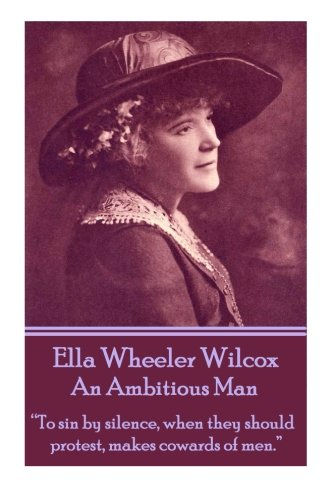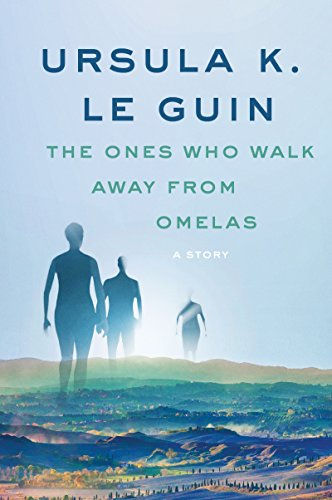To sin by silence
- Mar 31, 2022
- 4 min read

One of my favourite pieces of literature is a short story by Ursula Le Guin. The Ones Who Walk Away From Omelas is an experience 3000 words long, and since it was first published in 1973, it has established itself as a part of the discussion. It discusses Utopia in an interesting way, novel to itself.

In the story, the City of Omelas is celebrating a festival. It's a beautiful city full of exuberant life and excitement. yet, hidden deep within the city lies one child, locked away in the dark - never to be exposed to an ounce of kindness. The city sustains itself on the life of this child - one child's despair of the happiness of a whole city. This is not a secret, it's not hidden away from the citizens - all the people know where their happiness comes from and the cost of it all. It's only at the end of the novel that we meet the people who walked, who refused to be part of the city that thrived on the abuse of a child.
And further yet, the story refuses to allow change. There is no other option, you can either stay or walk away. It's purposefully rigid and it's maddeningly frustrating. So much so that many books, tv shows, animations, movies - all have tried to give an answer to this in some way.

Dororo, a Japanese manga comic published in 1967-1968 written by the legendary Osamu Tezuka is a story about a child. The story told from the point of view of an orphaned thief named Dororo also features a ronin named Hyakkimaru. Hyakkimaru is very mysterious and when we first meet him he has barely any organs - quite horrifying. He's very strong and he doesn't even have skin at first.
The story is quite honest in its brutality and thus mesmerizing. We learn in the beginning that Hyakkimaru is the way he is because his father, a warlord named Daigo has sacrificed him to demons in exchange for power and prosperity. However as the nature of the sacrifice was not specified, instead of taking Hyakkimaru's life, the demons took everything else from him.
Worse yet, instead of regretting his actions, or feeling any guilt, Daigo is simply disgusted by his son's visage and tells his retinue to get rid of him.
The baby is thus set to drift aimlessly on the river, leaving him to uncertain death. However, a man named Jukai finds the baby and rescues him, teaching him to fight, raising him and loving him. It is Jukai who gives him his prosthetics and they find out that if Hyakkimaru kills one of the demons who was part of the sacrifice, he gets a part of his body back.
Hyakkimaru doesn't even have the capability to feel pain, till he gets it back by killing a demon, and then he continues to feel tremendous pain till he ends his harsh journey. But Hyakkimaru doesn't know why it is so, he doesn't why he lost his body parts, or why he gets them back by killing the demons, he doesn't know who is responsible.
As he continues his quest we find out that with each demon he kills, the deal his father with the demons fades, which means that the protection they had given to his region starts to die down. Natural disasters and war start to brew. At first, people who learn of his fate and the warlord's decision are horrified and disgusted, but some of them believe it was a sacrifice that had to be made, once they see what starts to happen as Hyakkimaru heals.
But when we go back to Hyakkimaru's own perspective, stopping was never an option for him. He doesn't have a choice here, he cannot stop his quest because he lives in constant suffering and pain.
In Omelas, everyone but the child themself has had a say has had to make a choice of what they would do - whether to stay or to walk away. However, the second we ask the child, we give the child an option, we see the one who can't walk away. Who can't look away, who can't stop.
It's a brilliant take on a Utopia and it haunts my thoughts of Utopias. In the current world, we have so much content that shows that Utopian measures are merely a step away from a dystopian reality. The real fall of USSR is a brilliant marker in history. Reality proves that if any Utopian idea is to stand the test of humanity, there is an inevitability of its failure. There is perhaps no such thing as perfect, only better.
To end, I leave this poem Ella Wheeler Wilcox here.
“To sin by silence, when we should protest,
Makes cowards out of men. The human race
Has climbed on protest. Had no voice been raised
Against injustice, ignorance, and lust,
The inquisition yet would serve the law,
And guillotines decide our least disputes.
The few who dare, must speak and speak again
To right the wrongs of many. Speech, thank God,
No vested power in this great day and land
Can gag or throttle. Press and voice may cry
Loud disapproval of existing ills;
May criticise oppression and condemn
The lawlessness of wealth-protecting laws
That let the children and childbearers toil
To purchase ease for idle millionaires.
Therefore I do protest against the boast
Of independence in this mighty land.
Call no chain strong, which holds one rusted link.
Call no land free, that holds one fettered slave.
Until the manacled slim wrists of babes
Are loosed to toss in childish sport and glee,
Until the mother bears no burden, save
The precious one beneath her heart, until
God’s soil is rescued from the clutch of greed
And given back to labor, let no man
Call this the land of freedom.”


Comments